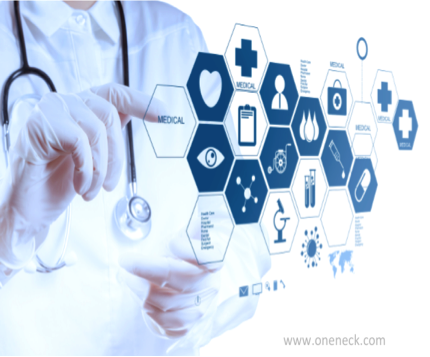Technological advances in the healthcare industry help with diagnostics, research, disease prevention, and overall patient care. However, careers associated with these advances are not a popular choice among those with a STEM related degree. 80% of STEM employees are in computer occupations or engineering. With a steady rise in digital advances such as computer software, apps, and hands-free devices, many job opportunities in the healthcare industry are left un-filled.
Professions such as Dietitian and Clinical Nutritionist are often left out of the STEM category, however these careers are primarily based around the scientific field. Students who strive for a degree in nutrition take courses such as chemistry, biochemistry, biology, microbiology, and physiology combined with business, mathematics, statistics, computer science, psychology, sociology, and economics.
According to myfuture.com, clinical nutrition and clinical technology management is projected to grow 20% – 30% by 2022. This results in a huge demand for STEM educated employees for healthcare services and the development of complex medical equipment. For example, employees with a technology background specifically in healthcare machinery aid in the trouble shooting of biomedical equipment and instruments and are responsible for advances in CAT scanners, MRI machines, ultrasounds, and diagnostic equipment.
The future of healthcare is also relying on the advances of robots and medical computers. Some hospitals are planning on using robots to bring food to patients, medical supplies to nurses and doctors, and janitorial services throughout the hospital. Robots are also being used to provide data and information to surgeons during surgeries where access to important information might be limited. 3D printing is currently being tested for medical parts such as tooth crowns, splints, tailored organs, skin grafts, and joints and bones just to name a few. Medical computers are also being developed to keep track of patient information including symptoms, surgery history, prescription history, and other important information.
The healthcare industry is one of the few industries that combine science, technology, engineering, and mathematics to make advances for patients and doctors. Those interested in STEM education must be aware that the opportunities are not just limited to computer software and engineering. The healthcare industry is also one of the few that will never go out of business. However, important medical advances will not be made if STEM education does not focus more on the many opportunities within this industry and the impact it has on the future economy.
Help us get the message out regarding the role the health care industry plays in the STEM revolution!
Sources:
http://tech.co/future-healthcare-robots-drones-automation-2015-10

